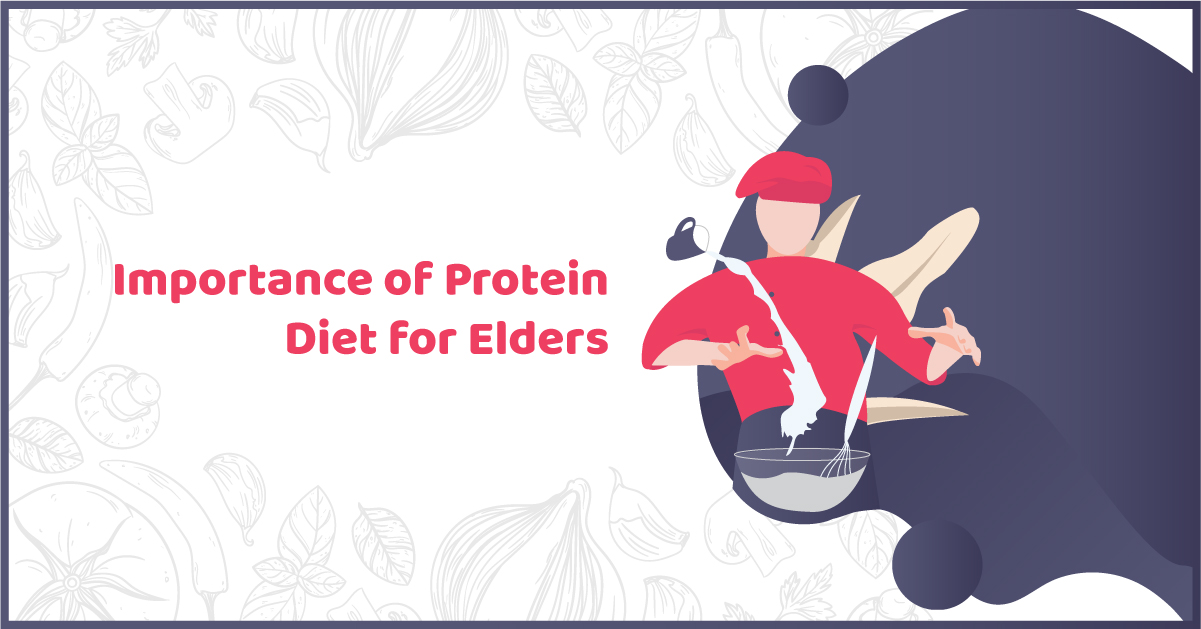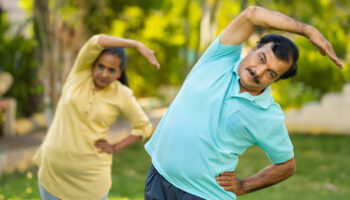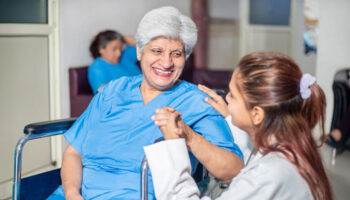Age not only depletes the energy and immunity in the body but also wears down tissues. Protein should be an essential ingredient in the healthy food for senior citizens as it helps to repair the damaged cells and nurture new ones. Protein has immense benefits for the elderly and is hence included compulsorily in the dining at assisted living homes.
Why is protein more important for seniors?
The protein tissue accounts for nearly 30% of the total body protein turnover. But this count declines with age and reaches to just 20% when the adult reaches 70. This is why elders require more protein than adults. According to elderly dietary guidelines, a senior citizen should consume at least 0.8 gms of protein per kg of body weight daily. Since sufficient dietary intake of protein is difficult for elderly adults, protein drinks for the elderly are made a part of the dining at assisted living homes.
How de protein help the elderly in their senior life?
Proteins are invaluable for seniors and must be a part of the healthy food for senior citizens because
- Proteins are the building blocks of the body which produce new cells, skin, tendons and ligaments.
- They even produce hormones and enzymes
- They repair damaged tissues and worn-out cells.
- Protein develops high concentration and produces energy by stabilizing sugar levels
- Proteins reduce sugar and blood cholesterol levels
- A good protein intake promotes bone health and reduces the risks of osteoporosis.
- Protein content in food reduces the chances of a stroke attack for seniors.
- Protein develops muscle mass and helps in eliminating the risk of paralysis.
- Eggs, cheese and fish are good sources of protein. One egg white has 7 gms, one cheese string has 8 gms and one can of tuna fish or chicken has 40 gms of protein.
- Cereals and beans are also sources of high protein.
- If seniors find it difficult to chew, protein drinks for the elderly made of soy, whey or casein can be given to the elderly.
- Dining at assisted living homes always includes milk, yoghurt or cheese as part of their meal plan for seniors.
- Nutritionists advise elders to follow the protein meal plan given below to ensure sufficient intake of protein daily.
- Breakfast- An egg, a slice of toast with peanut butter and a full glass of soy milk will give seniors 20 gms of protein at breakfast. Vegetarians can opt for protein cereal at breaks fast instead of egg and cook it in protein or soy milk instead of water to add protein to their diet.
- Lunch- Rice, cheese and beans with meat will add 25gms of protein. Adding beans or sprouts to your salad or soup for lunch gives you some protein.
- Dinner – Dinner time can have less meat and more vegetables and fruits to supplement protein. elders must consume less protein at night and more during breakfast or lunch.
- Snacks- Nuts and seeds can be taken as protein sources with smoothies made of protein powder.
Why proteins are invaluable for seniors?
Seniors above 50 are at a major risk of developing “sarcopenia” which is a muscle loss ailment. The intake of protein as a part of the healthy food for senior citizens greatly reduces the risk of this disease and helps to combat paralysis.
Protein deficiency can cause problems in elders like delayed wound healing, easy injury and bruising, dental issues, fatigue and poor appetite. This is why elderly dietary guidelines recommend a dial intake of protein for seniors.
How should seniors consume protein?
According to the elderly dietary guidelines, women should consume 45mg of protein per day and men should take 60 mg per day. Seniors can start taking protein as part of the breakfast, lunch and dinner routines.
Protein meal plan for seniors.
A protein-rich diet must be made a vital part of the healthy food for senior citizens at both their own residences and in assisted living homes.





